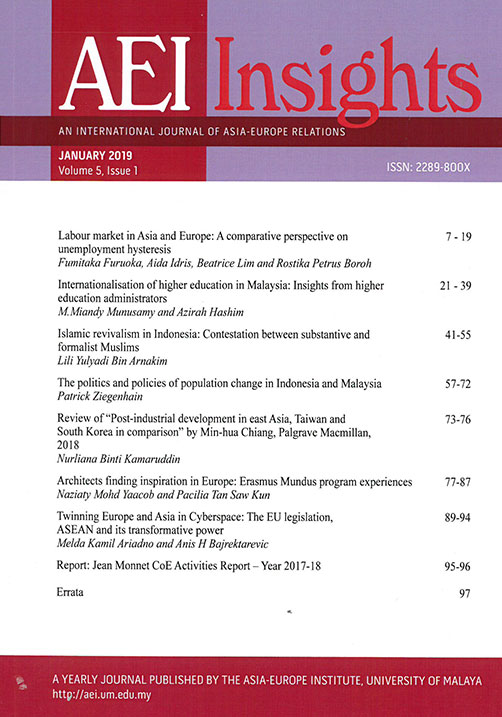Islamic revivalism in Indonesia: Contestation between substantive and formalist Muslims
Keywords:
Islamic Revivalism, Substantive, Formalistic, Pluralism and IndonesiaAbstract
Indonesia in the late 1970s saw a rejuvenation of Islam among Muslim communities just as it
occurred elsewhere in the Muslim world. Islam gradually became a popular source of Indonesian social, ethical and spiritual life. As a result, Indonesia witnessed the proliferation of mosques, religious schools, and devotional programs, the emergence of a vast market of Islamic books, magazines, and newspapers has developed, and a well- educated Muslim middle class that had begun to raise questions about modern issues, including on the role and rights of women, the challenges of pluralism, the merits of market economies, and most generally, the proper relationship of religion to the state. This paper aims at highlighting the dynamic Muslim communities in facing modern challenges. Using historical analytical method, this paper finds
that Islamic revivalism in Indonesia was unique as was provided for the demands of a new style
of religious and political activities. Muslim intellectuals arose with nontraditional training and
unconventional concerns. New Muslim intellectuals were responding to the demands of the modern world and the threat posed by the West. Though traditionally trained Muslim scholars,
who are considerably formalists, responded equally to the modern social and religious issues,
the new Muslim intellectuals, who are considerably substantive Muslims, prevailed in the Islamic discourses in Indonesia.







